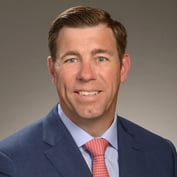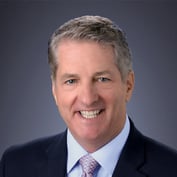What’s the biggest change you’ve seen in the advisory profession over the last 30 years?
I think that one of the biggest changes that has occurred is that advisors are now dealing with clients who are more informed and that has created unique challenges for financial professionals, meaning that clients are more informed but they’re not more knowledgeable, necessarily. This puts a special onus on the advisor for how they deliver advice.
I think the second biggest change, and this might be even more profound, is the strong emergence of independent businesses. Thirty years ago there was more of a tendency to see this business as large employer based companies who were in this business. Now what you see are literally thousands of independent financial professionals running their own enterprises, whether they’re affiliated with an independent broker/dealer or operating as an RIA. The special challenge that comes with that is, not only do they have to be current and sophisticated in how they render advice but they have to have the ability to run a business as well.
Many industries as they mature go through consolidation. DO you think that will happen here?
I think that consolidation is inevitable, but I think you have to be careful about drawing the wrong conclusion about that. If I look at the banking industry for example, they’re like planets colliding where the big banks kind of merge into each other, then they splinter into small planets. There’re always thousands of banks that are created that are small enterprises. I think the thing to recognize in the advisory business is that the vast majority of those firms are small businesses. The SBA regards as small businesses anyone doing under $100 million of revenue. I think what we’re talking about are almost micro businesses emerging into small and medium sized businesses. Getting to a level of critical mass is necessary. The second component of that is the age of the principals, which is forcing consolidation for different reasons. Ultimately there are several things that are driving the trend toward smaller businesses becoming medium-sized firms and that’s this pursuit of critical mass–that level of operating efficiency, consistency in the client experience and level of profitability.
What about succession and aging of a firm’s founders?
The best transitions are those done internally, so the challenge for the founders is to temper their enthusiasm for high multiples with market reality. If nobody will pay that price, then it doesn’t have that value. What they have to do is figure out, either through deal structure, or through a longer planning period and transition, or through an appropriate pricing model to figure out a way to incorporate new partners over time. What the best firms are doing, is they’re saying I’m not going to be dependent on one person taking this over, I need to have a diversified portfolio of succession options. That may mean for every one principal, there are three successors who could take over what they’re doing. That allows for people to acquire in bite-size pieces and should one of them fall off the map, it gives you flexibility in moving on to the next one. It’s a real concern. I know that many advisors have deferred their retirement for economic reasons, or frankly they’re not bored, and tired, and ill yet, and so that’s true.








 May 01, 2010 at 04:00 AM
May 01, 2010 at 04:00 AM









